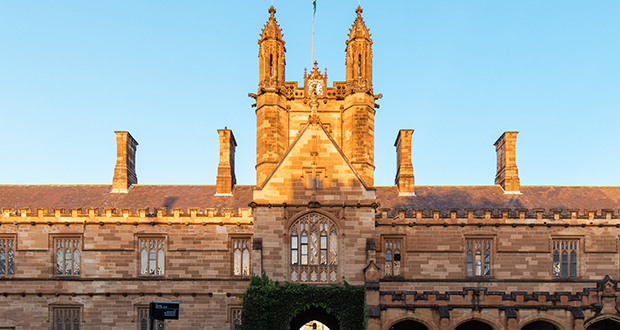After more than a year of negotiations with the University of Sydney, vice-chancellor Dr Michael Spence has written to the Ramsay Centre to propose an alternative program that would increase the number of students involved in studying Western civilisation and better utilise funding.
The proposal is to have students study two core or mandatory courses called Introduction to the Western Tradition I and II. Students would then choose from roughly 160 other subjects to complete their respective degrees. This would differ significantly from the degrees in Western civilisation that have already been approved by the University of Wollongong and the University of Queensland.
Spence believes his proposal, over the life of the funding agreement, would make better use of the university’s existing academics and provide scholarships, bursaries and overseas study trips to roughly 1100 students, rather than a smaller number of exclusively Ramsay Centre students.
Spence’s proposal has reignited opposition from both academics and students at the university, with students planning a protest today, The Sydney Morning Herald reported.
Some academics voiced their disapproval last week in a strongly worded letter to the vice-chancellor. In it they write that “it was unacceptable for the vice-chancellor of this university to speak in the name of its academic staff without our consent”.
“You speak … without any direct consultation with the disciplines concerned and without reference to the academic board,” the letter states.
The academics also accuse Spence of ‘window dressing’ in renaming the courses in 'Western civilisation’ as 'Western tradition’, arguing it does not fundamentally change the content, which they assert is narrow-minded, misogynistic and promotes an Anglocentric view of Western tradition and history.
While signatories to the letter include some of Australia's and the world’s preeminent experts in sociology, migration and English, a small band of academics support Spence’s proposal.
Professor Matthew Hindson from the Sydney Conservatorium of Music described the proposal as the “best of both worlds”.
“The opportunity for scholarships for students will be transformative. And having two ‘great books’ units will be a significant asset to the curriculum of the university,” he said.
Professor Peter Morgan, director of the European Studies program at the University of Sydney, also endorsed the proposal, saying he would be “happily involved in the planning and provision of these courses”.
However, one of the university’s most vocal supporters of the original Ramsay Centre course in Western Civilisation, sociologist Associate Professor Salvatore Babones, has criticised the revised program as being “Western civ lite” and is sceptical it will meet the goals of the original degree, which is predicated on fewer students, smaller class sizes, and far more exposure to Western civilisation through the study of “great books”.
Campus Review asked Babones to briefly respond to the study of Western civilisation in general and Spence's proposal.
CR: Why are you such a supporter of the Ramsay Centre’s degree in Western civilisation? What intellectual or cultural ‘gaps’ does it fill at university?
SB: I'm not necessarily a supporter of the Ramsay program. I support education in Western civilisation through the reading of great books, ideally for everyone, but if not for everyone, then for as many students as possible.
The idea is for students to experience the society in which they live by reading its greatest books. It's not about 'teaching' or 'studying' Western civilisation. It's about living it. We currently offer lots of units where you can learn about aspects of Western civilisation. We don't offer an experience in living it.
Do you think opponents of the degree or major have an apologetic attitude towards the West that eschews many of its achievements and traditions, and can you understand this?
The issue isn't whether Western civilisation is good or bad. The issue is that it's our civilisation. If Australians want to understand the society in which they live, they have to connect with its intellectual roots.
You’ve called Dr Spence’s proposal “Western civ lite” due to the dilution of the Ramsay program and the opening up of it to more students. Isn’t it better though that more students get the opportunity to learn something about the Western tradition?
More students would be great, but Spence's proposal offers students only two units in a 'great books' format. Reading and discussing books in a small seminar format is at the heart of the Western civ movement. If students just want to learn about Western civilisation in 200-student lectures with 25-student tutorials, they can just do a plain old arts degree.
You wrote in a recent opinion piece for the SMH that “a decade from now, [the degree] will be just one more phantom degree in the catalogue of cancelled programs. RIP Western civ." Why do you think that?
As I wrote in that article, we've been here before. Five years ago the University of Sydney offered a degree program that was near-identical to the one being proposed now. It stayed on the books for only a few years, and it's not even clear that it was ever offered at all. The proposal to bring back a 'lite' version of great books education isn't bad – it's boring. That's why it failed the first time, and why it will fail again.
Do you have an idea for a story?Email [email protected]
 Campus Review The latest in higher education news
Campus Review The latest in higher education news

